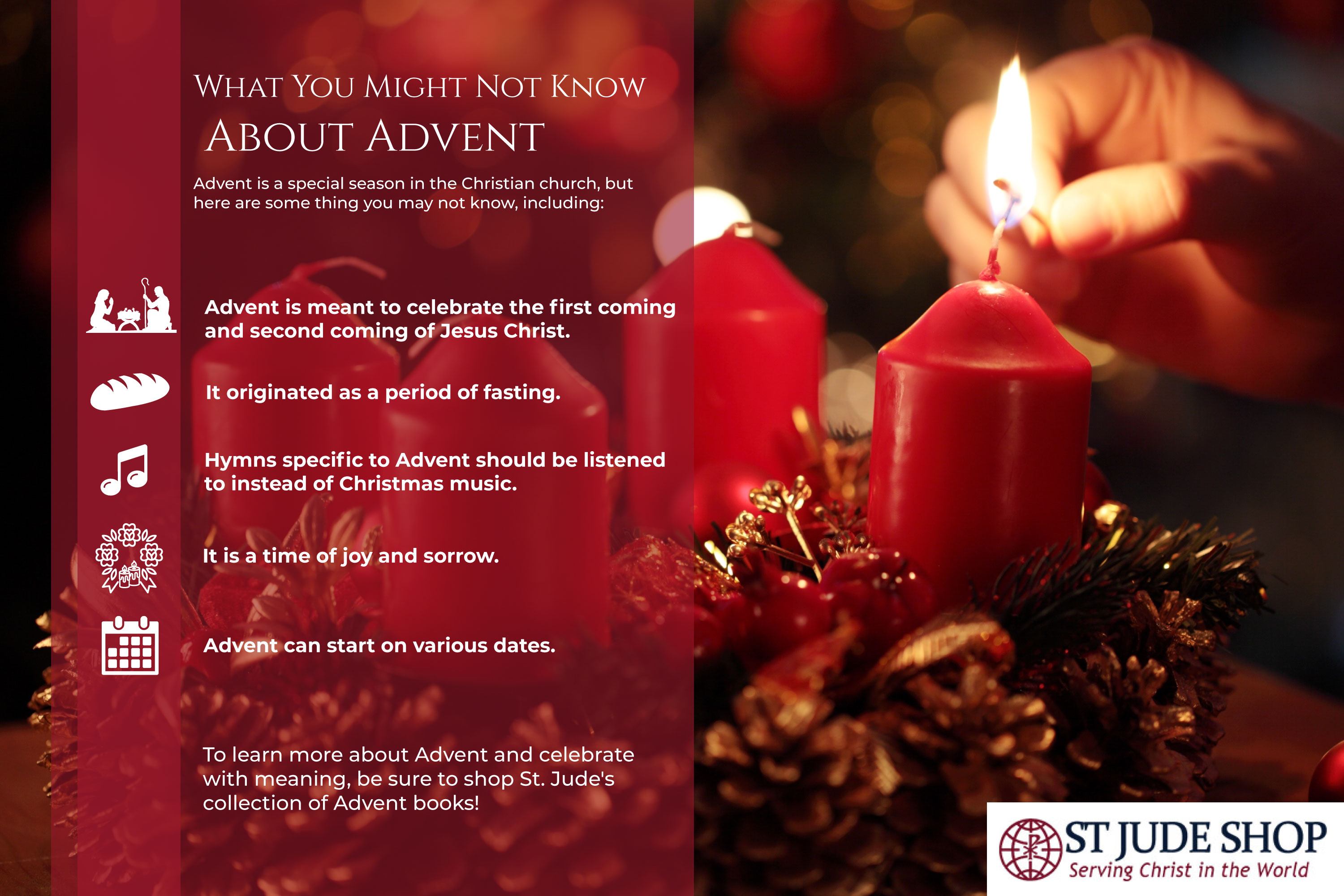Unveiling the Depths of Advent: A Guide from St. Jude Shop
19th Oct 2023
Advent, often associated with chocolate-filled calendars, holds profound significance as the period before Christmas, symbolizing the anticipation of the second coming of Jesus Christ. Beyond the sweet treats lie traditions and meanings that may not be commonly known. At St. Jude Shop, your trusted online religious goods store, we invite you to delve into the lesser-known aspects of Advent, to help you celebrate this season in a more meaningful way.
The Start Date Varies
Advent doesn't always commence on December 1st. Instead, it starts on the Sunday closest to the feast of St. Andrew the Apostle, ranging from November 27th to December 3rd. This variation allows for a flexible beginning to the season, accommodating the religious calendar.
This flexibility carries a beautiful symbolism. The varying start date mirrors the anticipation and uncertainty embedded in the Advent season. The fact that it aligns with the feast of St. Andrew adds a layer of historical and religious connection. As we mark our calendars for Advent, let us appreciate the intentional design behind its variable start, reminding us of the diverse traditions and history woven into this sacred time.
It Began As a Period of Fasting
Originating with 5th-century CE monks fasting in November, Advent initially centered around preparation through fasting for Christmas or Epiphany. While fasting may not be as prevalent today, understanding its historical roots adds depth to the season.
Fasting, once a cornerstone of Advent observance, conveyed a powerful message of preparation and self-discipline. Monks, in their dedication, engaged in this spiritual practice to align themselves with the upcoming celebrations. While modern Advent practices may not heavily involve fasting, acknowledging its origins connects us to the traditions upheld by those who laid the groundwork for the Advent season we recognize today.
Two Meanings of Advent
Advent serves a dual purpose: celebrating Jesus Christ's past arrival as a man and preparing for His second coming. It blends joy and sorrow, prompting Christians to reflect on the past year, express hope, and renew their faith. Isaiah's readings during Advent harken back to Old Testament promises of the Messiah.
This dual significance of Advent, celebrating both the historical birth of Jesus and anticipating His future return, enriches the season with a profound sense of continuity. The Christian journey becomes a dynamic tapestry that weaves together the past, present, and future. As we engage in Advent traditions, let us embrace the two-fold meaning, allowing it to deepen our connection to the overarching narrative of salvation.
Intricacies of Sundays and the Music Timing
Sundays of Advent play a crucial role, each dedicated to specific religious themes like the Prophets, the Messiah, or John the Baptist. These Sundays are integral in commemorating the first coming of Jesus and anticipating the second.
The Sundays within Advent, marked by distinct themes, provide a structured approach to reflection and celebration. From contemplating the messages of the Prophets to anticipating the arrival of the Messiah, each Sunday serves as a unique chapter in the Advent story. Embracing these themes fosters a holistic understanding of the significance of Advent, encouraging a thoughtful and intentional approach to the season.
The third Sunday of Advent, Gaudete Sunday, marks a shift from repentance to celebration. Joy, blessings, and reflections on gratitude take center stage, adding a dynamic layer to the Advent journey.
Gaudete Sunday stands as a pivotal moment in the Advent narrative. After weeks of introspection and repentance, this Sunday calls for a joyful celebration. It is a reminder that, despite the challenges and reflections on sin, the ultimate message of Advent is one of joy and hope. As we navigate our Advent journey, let us anticipate the arrival of Gaudete Sunday with hearts ready to rejoice and minds focused on the blessings and redemption that characterize this day.
Christmas Music Timing is distinctive for devout Christians who reserve hymns specific to Advent, such as "O Come, O Come, Emmanuel," and delay the onset of Christmas music until Christmas Eve.
This timing of Christmas music adds a layer of anticipation to the Advent season. By abstaining from Christmas tunes until Christmas Eve, there is a deliberate effort to create a musical crescendo, mirroring the crescendo of joy and celebration that culminates on Christmas Day. This unique practice invites us to savor the distinctiveness of Advent hymns and reserve the jubilant sounds of Christmas for the culmination of the season.
Advent is more than just a countdown; it's a journey rich in history, meaning, and tradition. As you discover these lesser-known facets, celebrate Advent authentically. Begin your meaningful Advent celebration by exploring our collection of religious goods at St. Jude Shop online. From books to candles and calendars, we have everything you need to celebrate Advent with purpose. Shop with us today and let this Advent season be a profound celebration of faith and joy.

